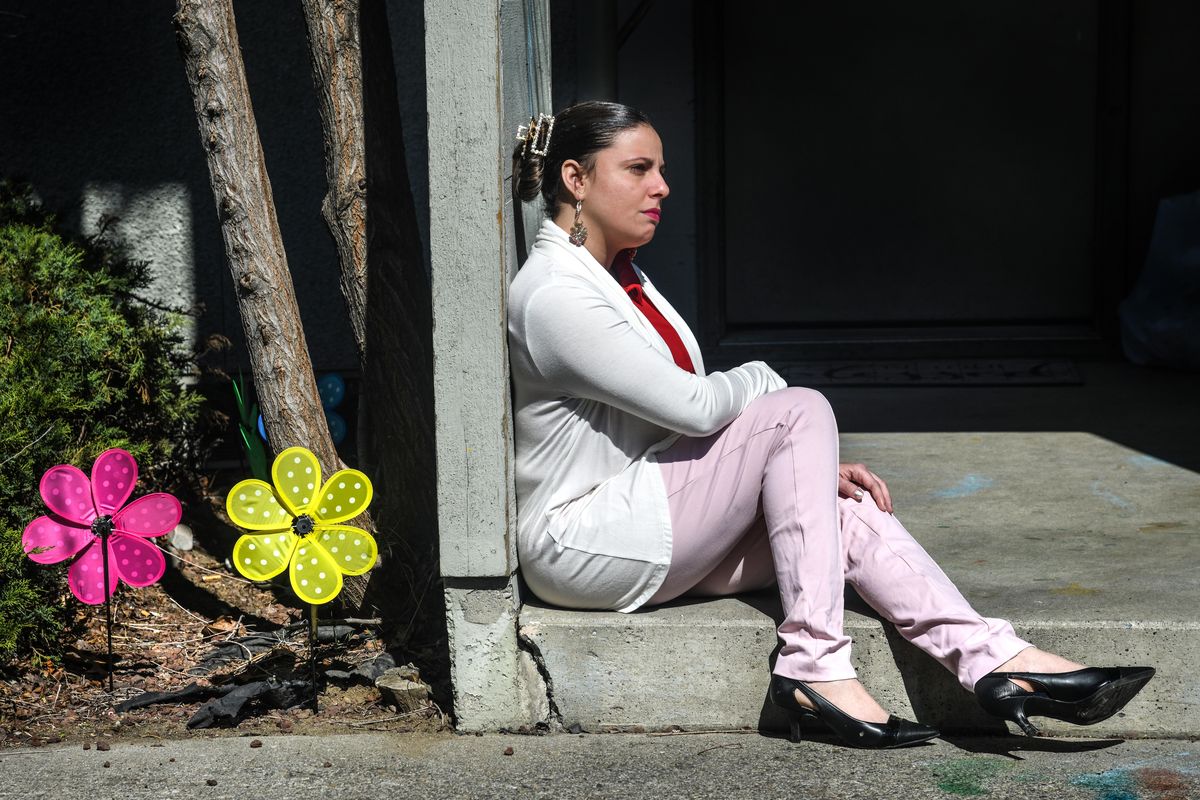Spokane school districts work to ensure access to vital technology for students learning English at home

When Yamiselis Verdecia filled out a form so her children could receive tablets from Spokane Public Schools and keep up with their learning during the COVID-19-caused closure, she had to copy and paste every question into her phone’s translation app.
Verdecia is native Spanish speaker, and those tablets are among the tools the Spokane Public Schools has provided to bilingual students and their parents to help ease the transition to online learning during the coronavirus pandemic.
Access to such electronics and the internet is proving vital to minimize the barriers students in bilingual courses face and improve communication with teachers.
“This is a big help to students so they can keep on preparing themselves and don’t completely lose the rest of the school year,” Verdecia said in Spanish.
Her children normally help translate letters and emails she receives from their schools, but sometimes they can’t because they’re sleeping when she gets home after working a night shift cleaning government offices.
She’s grateful for the efforts teachers have put in helping her children register and keep up with courses in the English Language Learning Program.
Verdecia said she’s also able to call a translator if she has questions or to ask about how her children are doing in school.
All the notifications she’s received are in English, she said, but teachers have been extremely responsive to any struggles her family has been facing as they adjust to the changes.
“I am conscious that it’s us who need to learn English and not the other way around,” Verdecia said. “But I would like to have a Spanish option or a translate option to make it easier.”
It’s been a challenge to make sure that students have access to technology and teachers can communicate with their families through the language barrier, said Darci Smulkawski, and ELL teacher at Chase Middle School.
“I have the unique challenge of having two students who are deaf or hard of hearing, and are also ELL,” she said.
Teachers are all being challenged to be creative and think beyond their comfort zone to support students, Smulkawski said.
Spokane Public Schools pushed teachers to ensure students enrolled in the ELL program understood how to access online resources, said Heather Richardson, ELL director.
“Learning a second language definitely has a communicative approach to it, and now we don’t have the ability to have that daily interaction the same way,” she said. “It’s definitely not beneficial.”
Verdecia said the online classes have been helpful for her children because it gives them something to do while in isolation and keep their minds active.
Central Valley School District also has increased efforts to make sure it’s reaching out to bilingual families who have children enrolled in the English Language Development program.
“We really know that our multilingual community surrounds one another and takes care of one another, and we are so grateful for them for sharing information with one another during these times,” said Kristin Day, ELD specialist.
Karolina Mata, a Spokane Valley resident and mother of three, checked out tablets from the schools so her children could complete their courses. Teachers have been instructing children how to remain calm during isolation and giving them family activities to do.
The district is doing what it can to provide families with the necessary tools and information in Spanish and English, she added.
“This isn’t common for them, and it’s not something they were trained to handle,” she said.
Many schools don’t have bilingual employees in their offices, so the information sent out is in English, Mata said.
District officials should ensure they are reaching out to Spanish-speaking families who are undocumented because often those families are not fully aware of the resources available to them or are fearful of asking for help because of their legal status, Mata said.
Day said one of Central Valley’s priorities has been to make sure all students have access to technology and to help families who don’t have internet access set up services free of charge.
The district is developing at-home learning kits with printed materials for families without access to online learning through the end of the school year, Day said.
“This is a very confusing time,” she said. “That’s why our priority has really been checking in with families and making sure that they’re OK and their basic needs are met before we’re trying to switch into this next phase of engaging them more academically.”
Reporter Daisy Zavala, who is bilingual, translated comments from interviews with Verdecia and Mata for this story.